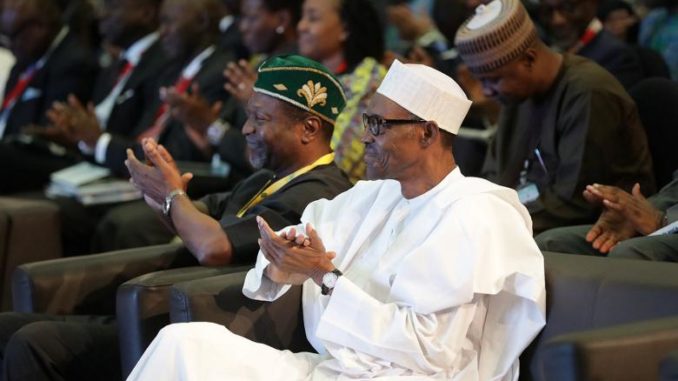
Ending the insurgency in Nigeria’s Delta region that has hobbled oil production is the first goal of a seven-point plan for the petroleum industry, the country’s oil minister said on Thursday.
The government is launching a $10 billion infrastructure program in the restive region that produces most of Nigeria’s oil, and President Muhammadu Buhari will meet representatives of militant groups and community leaders from the Niger Delta in Abuja next week in a bid to end the attacks.
“Our target is to ensure zero militancy in the area,” oil minister Emmanuel Ibe Kachikwu told a forum in Abuja aimed at outlining strategy for the petroleum industry. “This planned meeting shows the level of interest the president has to ensure peace in the area.”
Kachikwu said the $10 billion investment is “not necessarily” going to come from the federal government, but rather from “oil companies, investors, individuals”.
Militants fighting for a greater share of the OPEC member’s wealth complain of poverty and a lack of development across the oil-rich Niger Delta region.
NATIONAL IMPERATIVE
The seven-part strategy also envisaged passing a long-delayed Petroleum Industry Bill by December. The bill, which covers everything from an overhaul of state oil company NNPC to taxes on upstream projects, was delayed by violence in the Delta, which at one point cut production to 30-year lows.
The first part is already pending in the senate, and Kachikwu said the second part, which deals with fiscal aspects of the petroleum industry, is “almost completed” and will be presented to the oil industry in the next week or two.
While the government has emphasized diversifying the economy, Buhari on Thursday said it would be impossible to move forward without the oil industry.
“Oil and gas resources still remain the most immediate and practical keys out of our present economic crisis,” Buhari said, and the plan for the industry is “a national imperative and a core thrust of our economic policy”.
The other elements of the plan outlined on Thursday are: a business environment and investment drive, transparency and efficiency, stakeholder management and international coordination, gas revolution and finally refineries and local production capacity.
Kachikwu said Nigeria was also considering asset sales and wanted to improve the investment climate and enable development of the nation’s gas assets.
Kachikwu said Nigeria’s oil output stood at 1.8 million barrels a day, compared with the 1.9 million bpd the Petroleum Ministry announced earlier this week. Still, he added that the government hoped to get back to 2.2 million bpd next year – the level seen at the start of 2016.
“We have a capacity to produce 3 million,” he said.
Source: Reuters